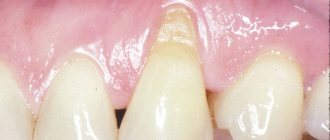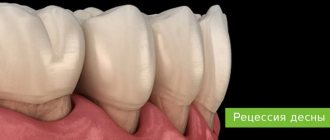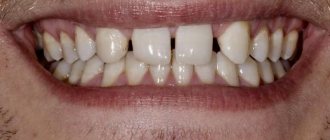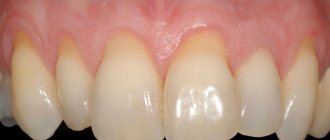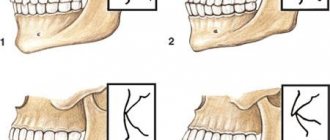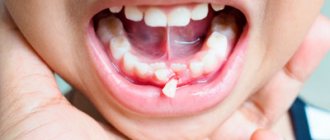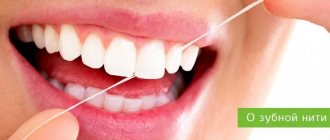- home
- What is important to know?
Dentophobia - what is this phenomenon? Each of us has encountered a situation in life when acute pain simply forces us to see a dentist. After all, as you know, self-medication or putting off visiting a doctor can lead to serious health problems.
Almost everyone is familiar with the fear of dental procedures. Some people are afraid to go for the first time, not knowing what sensations they will experience, while others still remember the sad experience of visiting a clinic where a person felt pain. What to do? How to cope with your emotions and adequately accept the fact that you need to cure your tooth?
Children's fear of the doctor
Many people know that we acquire all fears deep in childhood. Why is a child afraid of the dentist? The very appearance of a man in a white coat, with a large number of scary, incomprehensible instruments and instruments already inspires fear. His phobia can be affected by the fact that the baby sees how his mother or father are worried about him, or in the clinic itself the child can hear the crying of other children. The buzzing sounds of dental instruments will also frighten him. How to prepare a child and instill in him from childhood that dental treatment is not at all scary?
- The right choice of specialist. Parents should choose a clinic with positive reviews, a dentist with extensive experience who knows how to find an approach to each child. Often, the child, seeing the “kind aunt,” begins to smile and the fear of the dentist goes away.
- Positive attitude. It is necessary to explain to the child that after visiting the doctor he will only feel better and his teeth will not hurt. It is worth arguing why every child should visit the dentist and promptly treat caries or remove a diseased tooth.
- Don't say unnecessary words. You cannot say the words “scary”, “don’t be afraid, everything will be fine” in front of him. After hearing these phrases, the child, without even knowing what dentistry is, will begin to be afraid of it on a subconscious level.
- Make doctor visits a game. Invite your child to play as a doctor who treats his patient’s teeth, show that it’s not scary. It is also possible that you will promise to buy him something he wants (a toy) after the baby’s tooth is cured.
- Showing a clear example. You can give your child an example of his friends who bravely went to the dentist. Or, as an example, describe the situation of how you treated your teeth. Tell your child about the positive experience of receiving a dental procedure.
If every mom and dad follow these rules, then the process of visiting the dentist will be more enjoyable for both the baby and the parents themselves. And, as a rule, childhood fear will not develop into dental phobia at a conscious age.
What is the cause of fear?
Why are people afraid of visiting the dentist? The reasons may be different:
- Fear acquired during life
is formed against the background of negative experiences of past visits to the doctor. This is the most common case. - A phobia generated by imagination
is based on far-fetched fears: stories from friends, things seen in movies, etc. - Hereditary fear
is an attempt to avoid pain in any of its manifestations. The desire to protect ourselves is embedded in us at the genetic level: the mouth is a sensitive part of the body, and therefore it seems to a person that any invasive manipulation in the mouth will be very painful.
A psychotherapist will help you get rid of severe dental phobia: you will be able to overcome the pathology only after hard work on yourself.
According to statistics, only every fifth person treats visiting the dentist as calmly as going to the cinema or the hairdresser. So what should you do to visit a specialist without fear?
How to learn to overcome the fear of visiting the dentist?
The approach to overcoming fear of the dentist in an adult is slightly different. Here no one will take you by the hand or promise to fulfill your wishes for visiting the dentist. At a conscious age, a person is left alone with his fear. How to admit to myself that I am afraid to treat a tooth and how to deal with it?
There are signs that can help you determine whether you have a dental phobia or not. Dentophobia manifests itself in postponing a visit to the doctor, even in case of acute pain. The person tries to cope with the situation with painkillers. Blood pressure rises and pulse increases. Cases of loss of consciousness in the dental chair. Panic attacks at the sight of a dentist and dental equipment.
Firstly , if you are very nervous before the procedure, you should drink a sedative (valerian, motherwort). This will help get rid of panic attacks, dizziness, excessive sweating, rapid heartbeat, and high blood pressure.
Secondly , you should warn your doctor about your fear so that he can treat you with the utmost care and caution.
Thirdly , choose exactly the clinic and the dentist that evokes only positive emotions in you. Talk to your friends, hearing good feedback from someone you trust, the fear will gradually go away.
Fourth , during the dental procedure, be distracted by something else. Many clinics turn on music or TV so that the patient can relax.
Fifthly , do not forget that you can always use anesthesia, which will help you survive the procedure with the easiest sensations and without pain.
Often a person is afraid to go to the dentist because of the fear of death after anesthesia, as there are cases of an unexpected reaction of a person to a medication, resulting in anaphylactic shock. In order to reassure yourself, you need to get tested for allergies to painkillers. After which, having seen that everything is in order with you, you can calmly go to the dentist.
How does a dentist help fight dental phobia?
For a dentist, dental phobia is a problem no less serious than for a patient: it interferes with effective treatment and prevents proper dental care. A good doctor will assess the severity of the phobia in advance and will make every effort to help the person cope with the fear. Dentistry itself is now developing along this path: patients are offered comfortable treatment methods that reduce not only pain, but also the level of stress. For this use:
- relaxing soundtrack. This could be soft, calm music or sounds of nature;
- distraction: the ability to watch TV, films during the reception;
- methods of psychological work with the patient. Sometimes a smile, light conversation or reassurance is enough to immediately reduce the level of fear. In other cases, the patient may be reassured if the doctor tells him exactly what he is doing or how much time is left until the end of the procedure.
Treatment can be adjusted to simply remove the most frightening aspects. If a person is afraid of the sound of a drill, chemical or ultrasonic methods, or simply “quieter” equipment, can be used to prepare teeth. If the phobia is associated with the smell of drugs, they select drugs that lack it or prepare them at a distance from the patient so that he does not feel them. You can almost always find an acceptable treatment option. The main thing is to contact your doctor and try to stop being afraid of the dentist.
What kind of pain relief do we use?
In the dental clinic Restoration, treatment is based only on the highest quality and modern drugs that meet the quality guarantee. We use:
- general anesthesia is a state when your consciousness is turned off and you do not feel pain (sleep);
- long-term sedation - a state of light sleep in which you will feel relaxed and light;
- sedation with nitrogen - oxygen - the patient is awake and conscious, but does not feel pain;
- local anesthesia – reduction of tooth sensitivity.
Reasons for being afraid of the dentist
There are brave souls who fearlessly go to the dentist and rejoice in the fact that they will soon become even healthier, but there are very few of them. Most people dread going to the dentist. The reasons why patients are afraid to go to the dentist are common fears.
Fear #1. It will hurt me a lot!
Fear of pain is the most common and severe, and can arise for several reasons:
- Stories from relatives or friends about the pain they experienced during dental treatment. Stories from the distant past sound especially frightening, when there were no effective painkillers, and old drills inspired fear not only with their sound, but also with their appearance.
- Fear coming from childhood. Often parents choose the wrong tactics for hygienic education of children: by forcing children to brush their teeth, they scare them with toothache and doctors. In adulthood, the subconscious revives pictures from childhood, and fear appears.
- Personal negative experience of dental treatment. A person remembers all the painful procedures he had to endure at the dentist's office.
- Low threshold of pain sensitivity in the patient.
How to deal with this fear You need to understand that modern dentistry allows you to treat your teeth completely painlessly. There are two types of anesthesia:
- Local - the anesthetic relieves sensitivity only where medical intervention is planned. To administer anesthesia, carpule syringes are used, the needles of which are thinner than those of any other disposable syringes. This allows you to reduce pain during the injection. Modern anesthetics Ultracaine, Septanest, Mepivastezin, Ubistezin are several times superior in pain-relieving power to novocaine and lidocaine, which were used previously. If the patient is afraid of even minor pain, an anesthetic gel or spray with lidocaine is applied to the gum before inserting the needle.
- General is general anesthesia, it is performed using narcotic analgesics. They are administered by inhalation or intravenously, while the patient’s consciousness is turned off. General anesthesia is used when local anesthesia is ineffective, when there is a large volume of surgery, and for some medical reasons.
Sedation is also used - with the help of special drugs, the patient is put into a state of semi-sleep, but at the same time he can communicate with the doctor. The feeling of fear disappears, indifference to any manipulation appears, and mood improves. Sedation does not eliminate pain and is therefore combined with local anesthesia.
Modern equipment, which is equipped with an effective cooling system, also helps reduce pain. The use of ultrasound and laser systems in surgical dentistry facilitates complex operations.
Treatment of caries in the initial stages is possible without a drill with Icon technology: tissues affected by caries are softened with a special gel and removed; Icon liquid filling is applied on top.
Advice: Familiarize yourself with modern methods of pain relief and dental treatment, study information about clinics in your city.
When you decide to come for an appointment, tell the doctor about your fears. Agree with him on some kind of conditional sign that you will give if you suddenly feel unpleasant or hurt. The doctor will immediately stop the manipulations and take measures, for example, increasing the anesthesia.
Fear No. 2. I'm afraid of the doctor's judgment
Often, patients with bad teeth are afraid to go to an appointment only because they feel that the dentist will judge, shame them for their oral health, or express their disgust.
How to deal with this fear Think about how many different people the dentist has seen over the years of his work; it is unlikely that everyone’s dental condition was ideal.
Advice: look on the Internet for pictures of some dental diseases, for example, generalized caries. For a doctor, such things are everyday practice, and he certainly won’t be surprised by your teeth.
Fear #3. I'm afraid that the tooth will be removed. As long as it doesn’t hurt too much, I won’t go!
Many people, not understanding the specifics of treatment, believe that if a tooth starts to hurt, the doctor will remove it, so they avoid visiting the dentist’s office for as long as possible. Or they wait until the slight pain in the tooth goes away on its own.
How to deal with this fear It is important to understand here that teeth will never be restored without the help of a dentist. No competent specialist will remove a tooth that can be saved. But the longer a tooth is left untreated, the less likely it is to save it; the health of other organs is at risk. For example, if in the initial stages of caries you can only get by with a filling, then delaying treatment can lead to the development of pulpitis, then periodontitis, destruction of the jaw bone tissue will begin, and the infection will spread through the bloodstream to other organs (heart, kidneys).
If a tooth is lost, prosthetics will be needed to restore the chewing and aesthetic functions of the jaw, and this entails an increase in the cost of treatment. It is wiser to protect the natural health of your teeth.
Advice: Make an appointment with your doctor for a consultation without treatment. Discuss with your doctor the condition of your teeth, upcoming procedures and their cost. Ask your dentist what processes will occur in the diseased tooth if it is not treated; what complications does this threaten?
Fear No. 4: The doctor will make a mistake or infect me with something.
If you had a negative treatment experience in the past, an incorrect diagnosis was made and complications arose because of this, it is natural to fear that history will repeat itself.
Due to the prevalence of HIV and hepatitis viruses, cases of infection with these infections through dental instruments are widely known. Therefore, the fear of becoming infected during treatment is well founded.
How to deal with this fear The fear of medical error can be avoided by turning to a specialist who regularly treats good friends or relatives. Numerous positive reviews about the dentist will reassure you and give you confidence.
Some patients are frightened by the unknown: not knowing what the doctor is doing, they simply shrink in fear in the chair. An attentive dentist will explain his actions, which will relieve all the patient’s worries and fears.
For those who are afraid of contracting hepatitis or HIV infection, dental clinics offer the “AntiAIDS-Antihepatitis” program: it includes using a special method to ensure the sterility of all instruments and materials.
Advice: make an appointment with a doctor, talk to him, get acquainted with the equipment in his office and methods of work. Find out which clinic in your city takes part in the AntiAIDS-Antihepatitis program.
The patient is an active party in the treatment process!
Every patient should be aware of their fundamental rights when seeking dental care. Article 20 of the Federal Law of the Russian Federation “On the fundamentals of protecting the health of citizens in the Russian Federation” tells us that before the procedure of medical intervention, every person has the right to familiarize himself with the possible consequences after treatment, with methods of providing assistance, after which he gives his written consent to carry out those or other procedures.
Also, every person has such rights as the right to freely choose a specialist, the right to maintain medical confidentiality. The dentist should not disclose information about the patient’s health status to other persons.
If a patient discovers that a specialist’s service was poorly performed, he may demand that the deficiencies be corrected free of charge, a reduction in the price for the procedure provided, or a free repeat dental procedure. The consumer will be able to reimburse all funds spent on a poor-quality procedure, demand legal expenses, compensate for moral damage caused, and losses associated with outside care. He can also reimburse the money that he was forced to spend on purchasing medications.
The patient can present his demands during the provision of the service or during the period of validity of the guarantee for the dental procedure. If the clinic does not provide any guarantees, then within two years from the date of receipt of the medical procedure.
Comfort during treatment
In our clinic you will understand that dental treatment is not a scary procedure, but a completely pleasant process. Restoma dentistry guarantees you:
- Friendly and respectful attitude towards each client;
- A detailed story about all types of dental procedures;
- Quality conversation. We are ready to answer any of your questions!
- Acceptable prices;
- Comfortable pastime. You can be distracted by watching an interesting movie on a modern TV monitor.
- Guarantee after undergoing a dental procedure.
- Receiving competent recommendations for further oral care.
Our clinic specializes in a wide range of services, namely:
- Computed tomography of teeth
- Prosthetics (crowns and implants)
- Teeth whitening
- Sealing
- Treatment of caries, pulpitis, periodontitis
- Installation of braces, retainers, aligners
- Tooth extraction
- Bone grafting
- Surgery
If you experience pain or discomfort while eating, come to the Restoma clinic, Moscow. We can quickly and competently solve your problem, and also convince you that dental treatment is great! We are waiting for your call by phone or online to make an appointment!
Why is it not scary to treat your teeth at YuliSTOM?
Yulistom: everything is official and transparent
Treating your teeth with us is not scary, but safe and even useful. Our dental clinics employ experienced doctors who have undergone multiple professional retrainings, we have transparent prices, licensed activities and an agreement with each patient, in which we undertake to do everything efficiently and professionally. Our place is always clean and tidy, our equipment is state-of-the-art, and our customer service is European-style. We work every day, without lunches or weekends, and you can make an appointment with a dentist right now (online). Our clients willingly take advantage of our lucrative promotional offers and discounts, which is why you can find a lot of reviews about YuliSTOM on the Internet.
Take courage to come to Yulistom with your problem. We promise that we will do everything possible so that the second time you come to our clinic without any feeling of fear and anxiety.
Sincerely, the entire team of dentists at the YuliSTOM clinics (St. Petersburg)
Moscow Zvezdnaya metro station, Danube Avenue, 23

